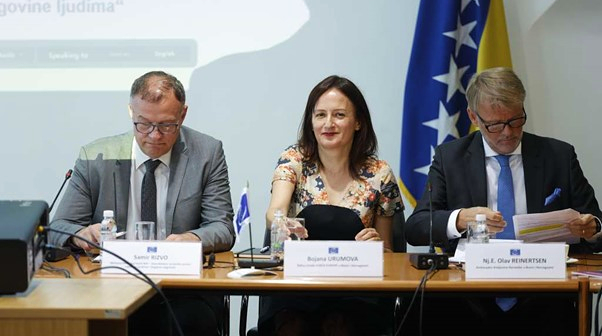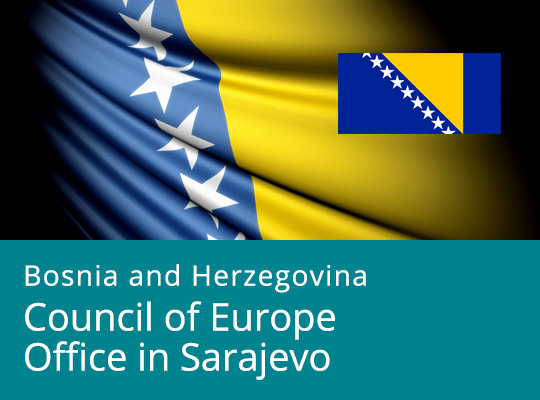"I have seen first-hand the devastating effects of human trafficking on individuals, families and communities, and I firmly believe in the importance of initiatives guided by surviving victims. We were told that we are a unique case in the world - in terms of the number of exploited persons - and that the way, in which our case has been solved will be a matrix for all other similar cases", said Marko Tamindžija, at today's round table on "Enhancing the participation of victims and survivors of human trafficking in anti-trafficking action in Bosnia and Herzegovina". This round has been organised as part of the anti-trafficking project implemented by the Council of Europe, in cooperation with the Ministry of Security of Bosnia and Herzegovina.
"As a survivor of human trafficking, I understand all the obstacles that victims face on their path to healing and recovery. I want to emphasise that I am sure that our struggle for the realisation of rights, not to mention the recovery after trauma and the continuation of our lives, would have been much simpler if we had adequate and more support", Seudin Zoletić pointed out.
"The role of media in informing and sensitising the general public about human trafficking is very important, and media support is irreplaceable in the prevention of this social scourge. In order to restore dignity to victims, we must make their voices heard when policies and measures to combat human trafficking are developed ", said Bojana Urumova, Head of the Council of Europe Office in Sarajevo at the round table.
The importance of the voices of survivors was also emphasised by Samir Rizvo, Assistant Minister and State Coordinator for Combating Human Trafficking and Illegal Migrations, Ministry of Security of Bosnia and Herzegovina, and Petya Nestorova, Executive Secretary of the Council of Europe Convention on Action against Human trafficking. Samir Rizvo emphasized the importance of improving the response of institutions to the needs of surviving victims, enabling compensation and their active involvement in the fight against human trafficking. Petya Nestorova added “In the face of new and evolving challenges, victims and survivors are the best positioned to advise on adapting efforts and ensuring appropriate and effective services for victims of trafficking. Learning from victims can help address emerging challenges and longstanding systemic issues that drive vulnerabilities and perpetuate trauma”.
Representatives of the advocacy group for women, survivors of human trafficking, created by the NGO Atina, Serbia shared their experiences as well.
“We should always have in mind that the victims are not statistics or faceless figures. They are human beings with hopes, dreams, and a right to live free from exploitation. It is our responsibility to restore their dignity, support their healing, and provide them with the tools to reclaim their lives.” pointed out H.E. Olav Reinersten, Ambassador of the Kingdom of Norway to Bosnia and Herzegovina.
At today's round table, Marko Tamindžija and Seudin Zoletić shared their experiences as part of a group of over 650 citizens from Bosnia and Herzegovina, who were employed as temporary construction workers in Azerbaijan in 2009, deprived of their identity documents and exposed to degrading living and working conditions. A grant agreement was signed between the Council of Europe’s anti-trafficking project and the NGO Novi početak, founded by Tamindžija and Zoletic, to support the development of victims’ and survivors’ participation in the fight against human trafficking in Bosnia and Herzegovina.





